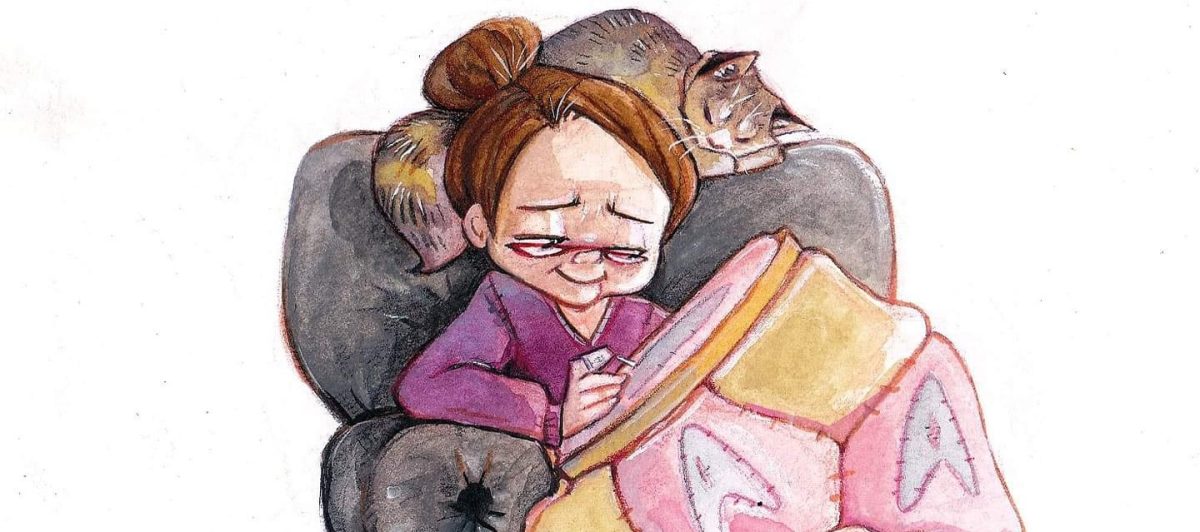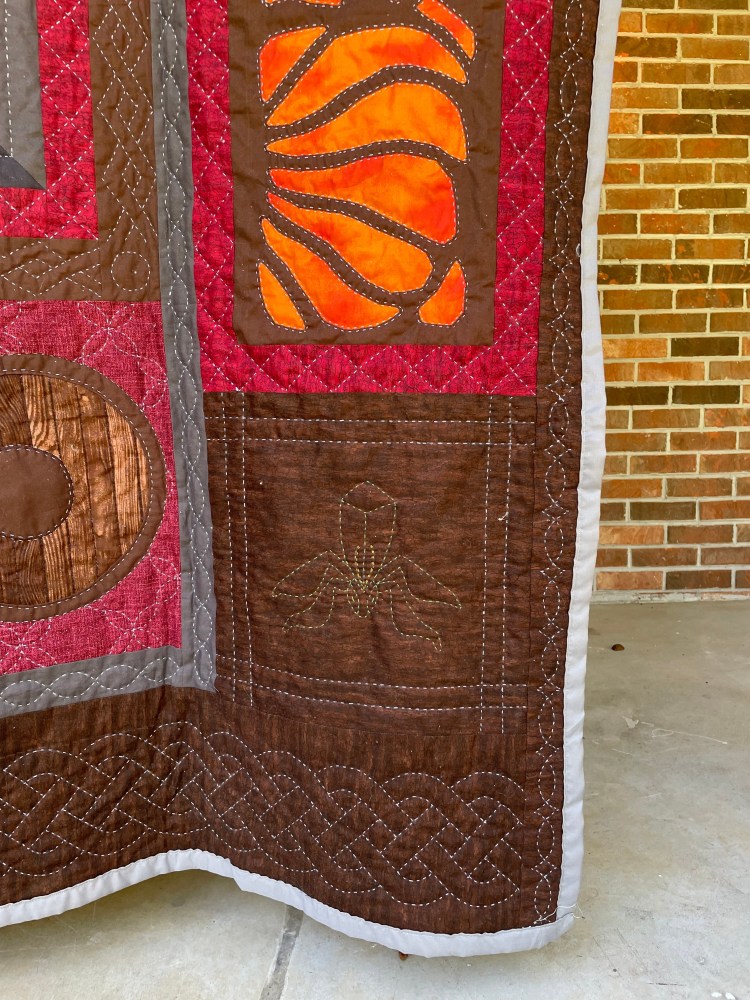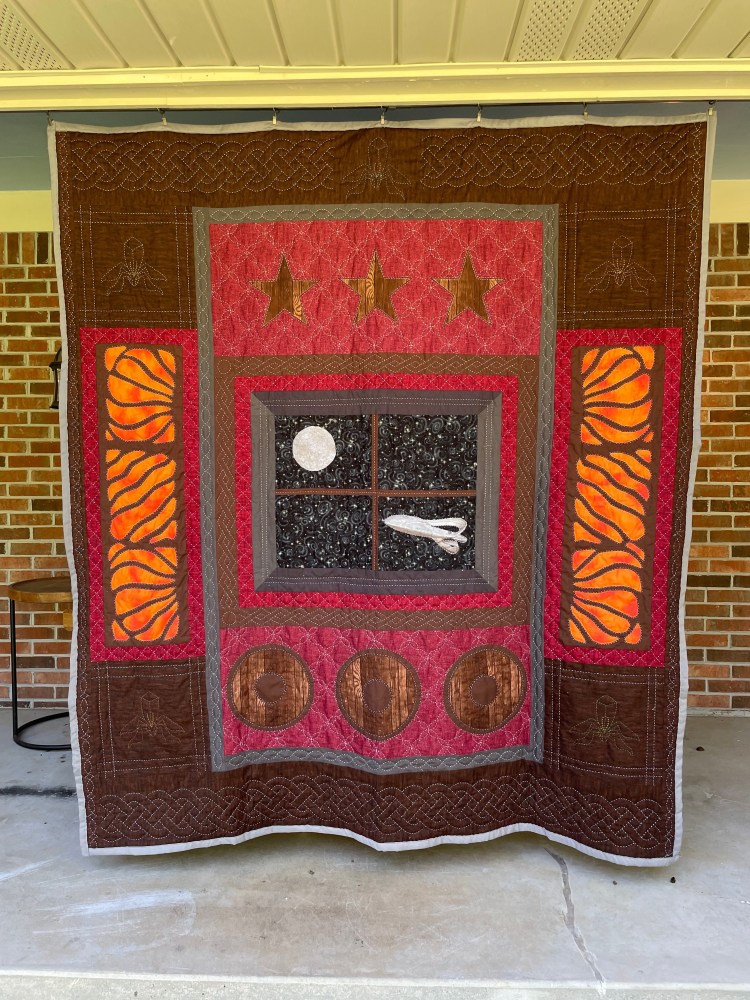Category: Marsha Loftis
The Orville – Moclan Quilt
Space 1999
USS Callister quilt
Lost in Space quilt
This is my “Lost in Space Quilt.” I designed it myself and painstakingly hand-quilted every stitch.





A handmade, hand-quilted “Lost in Space” themed quilt hangs vertically against a white wall. The quilt features a large circular center resembling a spaceship window, showing a starry black sky, a full moon, and a silver flying saucer. The words “Lost in Space” appear in a retro-style font in pale blue on the left side of the window. Surrounding the circle are playful appliqué figures of astronauts floating in space, classic flying saucers, and four colorful representations of the iconic robot from the original TV series, each in different colors (orange, purple, green, and yellow). Bright patchwork rectangles of orange, green, purple, yellow, white, and black form decorative horizontal bands above and below the circle. The background is primarily deep brown, with quilted diamond patterns throughout the borders. The TikTok handle “@msloftis” is visible in the lower right corner.

































































